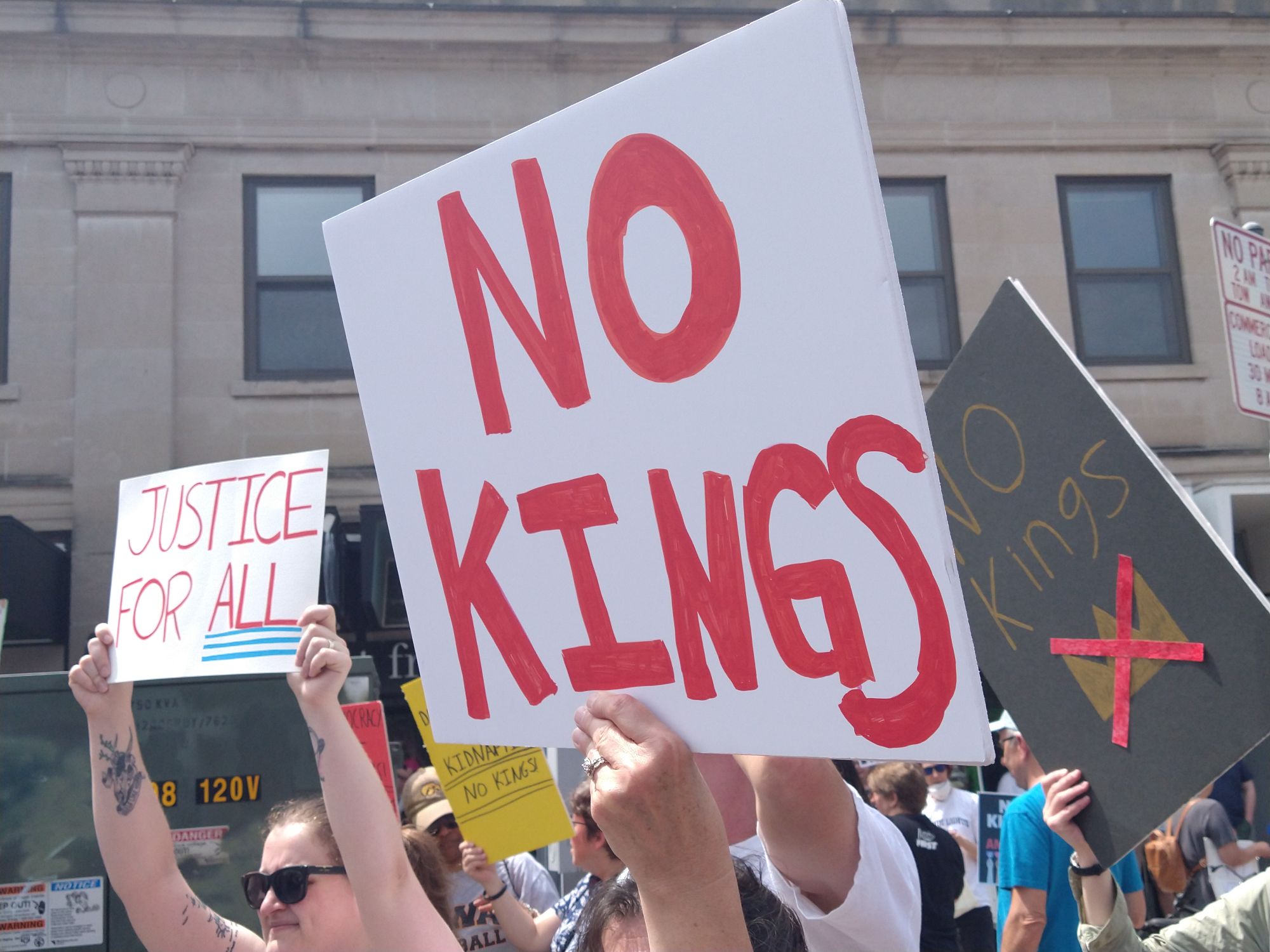Rick Morain is the former publisher and owner of the Jefferson Herald, for which he writes a regular column. This essay first appeared on Substack.
A year ago this month, U.S. Senate Minority Leader Chuck Schumer, Democrat of New York, introduced the No Kings Act with 36 co-sponsors. With the Senate under Republican control, the bill did not receive a vote and therefore died.
It deserves resurrection.
The No Kings Act was inspired by the U.S. Supreme Court’s 6-3 decision on July 1 of last year that the president is immune from prosecution for all official acts he or she commits while in office, even if they break the law. The court handed down that decision in Donald J. Trump v. United States, in which Trump was indicted for attempting to overturn the results of his loss to Joe Biden in the 2020 election four years earlier.
To complicate matters, the court did not define what constitutes an “official act.”
In the four months following the court’s decision, leading up to the November election of 2024, prosecutors refiled their case with narrower charges, claiming that Trump’s actions while in office in the 2020 election were political and not official. But the amended case could not work its way through the judicial system before Trump’s November 2024 victory. Thereafter the prosecution dropped the case because the government does not prosecute a sitting president.
If the No Kings Act became law, it would clarify that presidents are not immune from criminal prosecution. It would establish that Congress, not the Supreme Court, decides who is subject to federal criminal law. The longtime belief that no one is above the law would once again rule in America.
It’s not hard to imagine how last year’s court decision can empower an unscrupulous president. Could prosecution, imprisonment, or assassination of political enemies, for instance, be adjudged “official acts” if done under the ambiguous umbrella of legality that the court’s ruling suggests?
There’s no question that the court’s ruling has emboldened President Trump in his second term. And the question of whether his attempt to undo the 2020 election results was legal remains open. After he leaves office in January 2029, will he, and everyone harmed by the events of January 6, 2021, and America in its entirety, be denied a final resolution of those charges?
The nation’s Founders had no doubt as to what their Constitution intended. Alexander Hamilton in The Federalist Papers made clear that the president, in addition to being subject to impeachment, would always be liable for prosecution and punishment under the nation’s laws just like everyone else.
President Richard Nixon resigned because he broke laws, and the nation knew that he had. President Gerald Ford pardoned him, showing that he too believed that a president could be held liable for crimes. Had the court’s July 2024 decision been in effect, Nixon would have claimed the Oval Office tapes were private under the “official acts” ruling, and the nation would have remained oblivious to the proof of his misdeeds.
Ironically, a number of the Supreme Court Justices who signed onto the July 2024 ruling said during their confirmation hearings before the Senate Judiciary Committee that they believed the President is subject to the same laws as ordinary U.S. residents.
Boston College historian Heather Cox Richardson said it best, as usual: “People don’t recognize what a big deal this is. This isn’t an adjustment in the law. This is a change in our entire constitutional system. It says that there is one of the three branches of government that cannot be checked by the other two.”
What’s more, she added, “The rule of law, law and order underpins our entire system, the idea that everybody should be treated equally in the courts. The Supreme Court just ripped that up.“
She echoed Supreme Court Justice Sonia Sotomayor’s dissent in the 6-3 decision: “In every use of official power, the President is not a king above the law.” The decision, she said, “makes a mockery of the principle, foundational to our Constitution and system of government, that no man is above the law.”
Would the No Kings Act withstand constitutional challenge? The Constitution says it would. The Exceptions Clause in Article III, Section 2, states that, aside from a few specified types of cases, “In all the other Cases before mentioned, the supreme Court shall have appellate Jurisdiction, both as to Law and Fact, with such Exceptions, and under such Regulations, as the Congress shall make.” (Emphasis added.)
In other words, Congress has the power to decide what types of cases the Supreme Court can decide. If the No Kings Act were to become law, the July 2024 granting of presidential immunity for official acts would no longer hold.
It’s a heavy lift for the No Kings Act to become the law of the land. It would have to pass both the House and the Senate and be signed by the president. Won’t happen during this administration.
But the court’s ruling threatens a cherished American principle, regardless of which party, and which president, happens to control the government. It should be overturned. The voters should demand that their elected representatives, and yes, their president, support the No Kings Act.


1 Comment
if memory serves the American people
overwhelmingly voted to reelect Nixon after the release of the Pentagon Papers, so he really resigned because there wasn’t enough Republican support in Congress. What are the odds that such a law would be upheld by this lawless Supreme Court majority?
dirkiniowacity Fri 5 Sep 10:49 AM